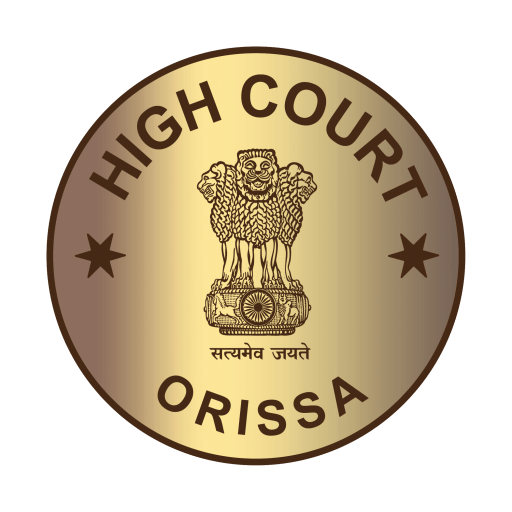
Board of Secondary Education v State of Odisha & ors
Case No : W.A. No 1413 of 2022
Date of Decision : 21.11.2023
Pension is a payment for the past service rendered and is
granted to further social and economic justice.
The present writ appeal is against the judgment of the Honb’le Single judge, who had allowed for claiming of pro-rata pension based on past service rendered. The respondent No 3 is the petitioner in the earlier case.
The appellants contend that he had rendered only 10 years and 1 month of continuous service with the Board and prior to that he was on deputation, so his earlier period of service is not to be considered for calculating pension. The respondent No 3 on the other hand contended that he had rendered a continuous service of 40 years and various similarly situated persons had already received their pensions.
The court referring to a catena of judgments concluded that pension creates a vested right upon the employer depending upon the statute holding the field; it is a payment for the past service rendered and that it is done to further economic justice and social welfare of the employees. Since the respondent no 3 was contributing to his pension fund from the inception of his service, he is entitled to the full pension from the Board.
Furthermore relying on U.P. Raghavendra Acharya v State of Karnataka and Sujata Mohanty v Behrampur University, it is reaffirmed that pension is a deferred payment which the respondent no3 is entitled to claim.
Secondly, since similarly placed people have been granted the pension for past service, denying the same in the instant case is an act of discrimination.
Finally, considering matrix from every angle, the court concluded respondent is entitled to pension for past services and such a lis has been decided in the case of State of Andhra Pradesh & another Vs. Smt. Dinavahi Lakshmi Kameshwari and D.D. Tiwari Vs. Uttar Haryana Bijli Vitran Nigam Ltd. Hence the appeal was dismissed.
Balasore Alloys Limited, Balasore & Anr v Union of India & Ors
Case No : W.P.(C) No 14204 of 2023
Date of Decision : 03.11.2023
The Court issued a writ of mandamus asking the Union Government to
give formal approval to Balasore Alloys Ltd. to extract Chromite ore.
The petitioner was allotted a mining lease to extract Chromite ore, but subsequently a notice was issued to cease extraction as the required licenses and conditions were yet to be obtained.
The petitioner had obtained a stay order on the notice and continued extraction. In the meantime, The Principal Chief Conservator of Forest, Nodal Govt. of Odisha, opined that all the requisite compliances were met and there is delay on the part of the authorities in granting the formal approval. Taking note of the above, the petitioner approached the forest bench of the Apex Court and obtained liberty to approach the High Court. Hence the present writ petition.
The petitioners contend that after complying with the required stage -1 requirement, the authorities must have granted the stage –ii approval and not granting such an approval is an arbitrary action on the part of the concerned authorities. They further persuaded the court that a writ of mandamus should be passed court for compliance by the opposite parties.
The opposite parties argue that the petitioners had continued the mining operation without formal approval and hence the penalties imposed must be realized before the formal approval can be granted. Since the amount of fines was to be decided, the petitioner could not have been allowed to excavate minerals without forest clearance.
Taking note of the above arguments, a writ of mandamus was passed issuing directions to the opposite parties to provide the formal approval in respect of the area for which the compliances have been met.
Therefore, the petition was allowed.
Kabita Jena and others v Rajat Kumar Mishra & others
Case No : W.A.No 1822 of 2023, 1561 of 2023 & 2539 of 2023
Date of Decision : 22.12.2023
The Court ordered to revive the original merit list of the
Assistant Section Officer Recruitment examination.
The present writ appeal was preferred jointly against the writ petition and the subsequent review petition filed by the applicants of the ASO exam. The petitioners were the unsuccessful candidates who claim to have been incorrectly not selected. They obtained a favorable order from the single bench and subsequently a review was filed by the erstwhile selected candidates. Hence the present writ appeal has been filed by the selected candidates.
Appellants argue that the appeal suffers from non-joinder of necessary parties, as the applicants who were selected were not made a party in the writ petition and that fixing of subject-wise cut-off marks is well within the discretion of OPSC, even though in earlier exams aggregate mark was preferred. Consequently, the order in the earlier writ petition and review petition should be reversed and the original merit list should be restored.
The respondents contend that no right has accrued in favour of any of the appellants and that they are not the necessary parties to the proceedings. Ruling in favour of the Appelants, the Court stated that the respondents had an opportunity of becoming a party to the proceedings in the earlier stage, instead they choose to be fence sitters. Hence, they are not necessary parties.
The respondents further argue that the decision to take aggregate marks does not suffer from any malafides, since the rules grant a discretion upon the OPSC to carry out recruitment. The Court accepting the argument reiterated that the 2016 Rules neither prescribes any fixed manner nor method for selection. Therefore, the preparation of select list is not de hors the law.
The Court further pointed out that the respondents had participated in the selection process being fully aware of the rules and seems to have challenged them once they became unsuccessful. Relying on various Apex court decisions, the court stated that such a practice cannot be allowed or entertained.
Therefore, resultantly the writ appeal was allowed and the original select list was revived.
Bhuban Mohan Dash v State of Odisha & Ors.
Case No : W.A. No 18559 of 2015
Date of Decision : 20.11.2023
The Odisha Development Authorities (Retirement Benefit of the Employees) Rules
2015 was declared ultra vires of the Odisha Development Authorities Act, 1982.
The petitioner is an employee of the Cuttack Development Authority (CDA), who has challenged the Odisha Development Authorities (Retirement Benefit of the Employees) Rules 2015 a being ultra vires to the Odisha Development Act, 1882.
Briefly, CDA was brought into the service of the state government along with all the benefits including pension under the Odisha Service Code and not under the Employee Provident Fund. However, since 1982 CDA employees were covered under the EPF and to rectify the same, the government assured that they would be treated at par with the state govt employees. But a contrary Draft Rules, issued for public opinion, in 2015, did not reflect the same. Hence the present petition.
The petitioners therein contend that the employees of CDA should be treated at par with the state government employees since it is under deep and pervasive control of the state government. As such state, not being a profiteering institution, cannot deny such deferred wages to the petitioner. Such an act is both ultra vires and contrary to the spirit of the constitution.
The respondents contend that the case is an inter-se dispute between the petitioner and the CDA, and the state got involved only because some of the CDA employees sought for state intervention. Furthermore, the new pension policy that has been formed does not violate the Act in any way, rather is in consonance with the new pension rules.
Since much has been said and discussed regarding ultra vires of the act, the court sought it appropriate to discuss the meaning of ultra vires and conclude that it is when the delegated legislation acts outside its power or contrary to the enabling statue. To this end, the court may also go into the objectives of the impugned act and test the same for procedural or substantive ultra vires.
Further, the right of pension has been time and again reiterated as deferred wages and is a right of the employee for his tireless work. This right cannot be taken away and hence in the particular case discriminates between CDA employees and state government employees.
Hence the rules are declared ultra vires to the Odisha Development Act 1882.

Golden grass art locally known as “kaincha” depicting a temple displayed in the Chief Justice’s chamber
